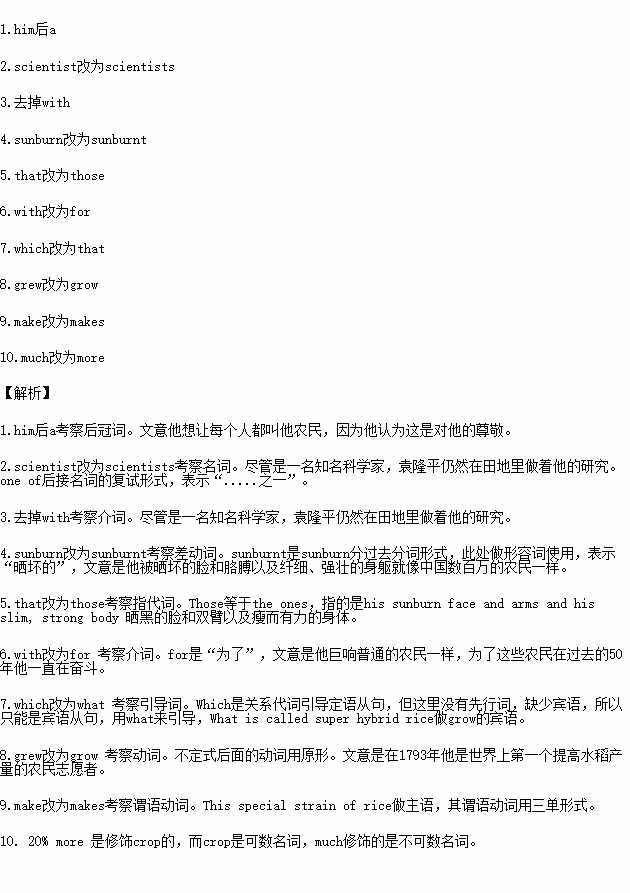题目内容
短文改错
假定英语课上老师要求同桌之间交换修改作文,请你修改你同桌写的一下作文。文中共有10出错误,每句中最多有两处。每处错误仅涉及一个单词的增加、删除或修改。
增加:在缺词处加一个漏词符号(∧)
删除:把多余的词用斜线(\)划掉。
修改:在错的词下面画一横线,并在该词下面写出修改后的词。
注意:1. 每处错误及其修改均仅限一词;
2. 只允许修改10处,多者(从第11处起)不计分。
He wants everyone to call him farmer, for that’s how he regards himself. Although he is one of China’s most famous scientist, Yuan Longping works on the land to do with his research. Indeed, his sunburn face and arms and his slim, strong body are just like that of millions of other Chinese farmers, with whom he has struggled for the past five decades. Dr. Yuan grows which is called super hybrid rice. In 1973, he became the first agricultural pioneer in the world to grew rice that has a high output. This special strain of rice make it possible to produce 20% much of the crop in the same fields.

